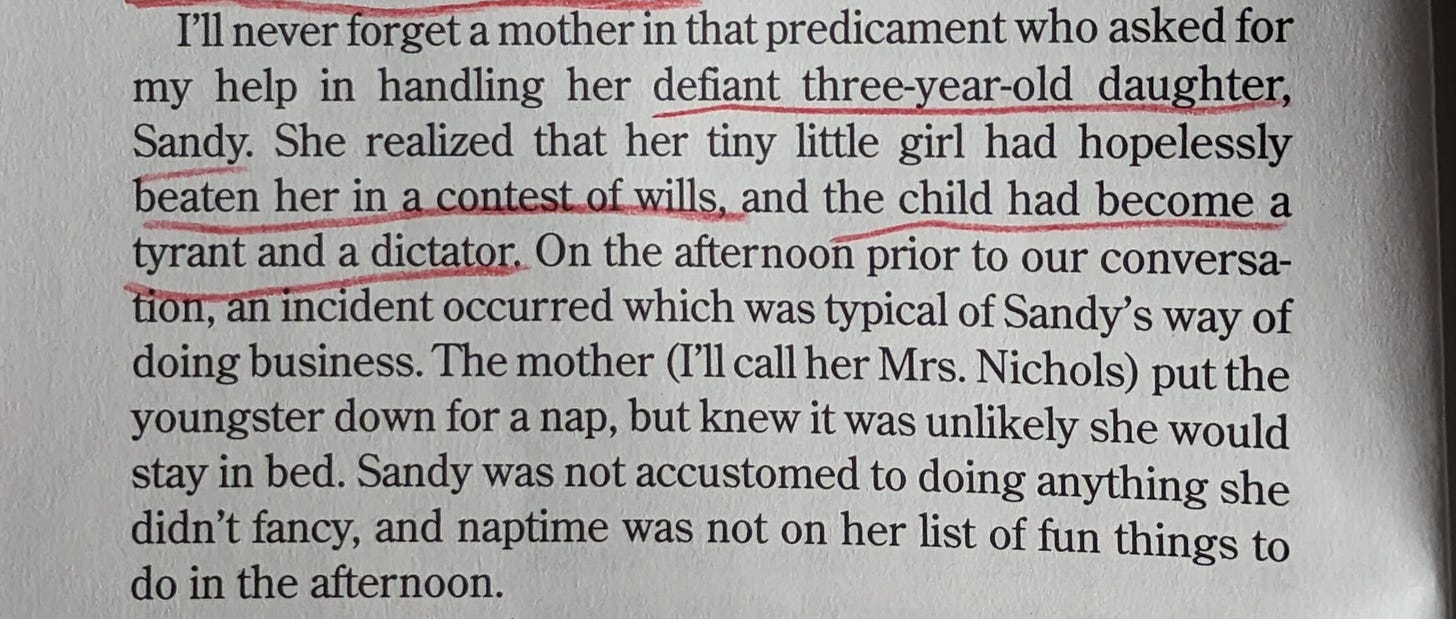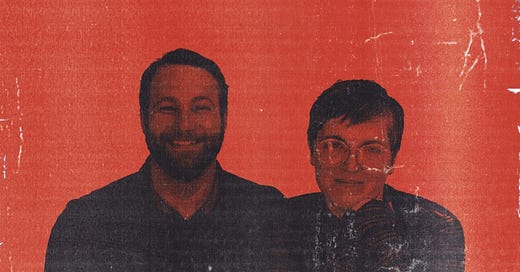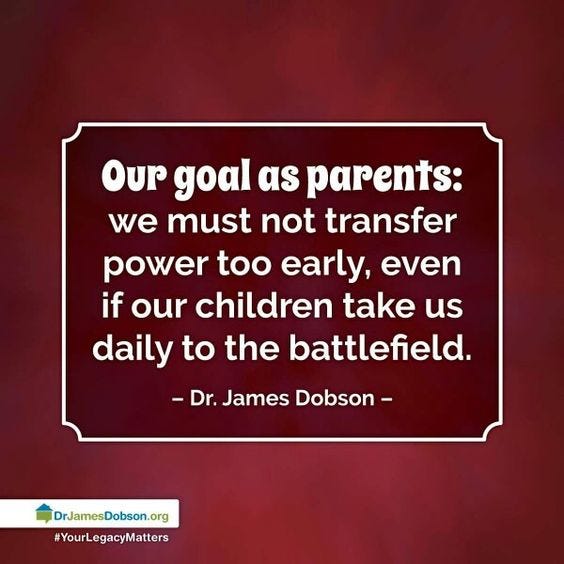Chapter 4: Children as Casualties of the Culture War
What happens to a person when their childhood becomes a battlefield?
STRONGWILLED is a reader-supported publication. We are so grateful for everyone who has liked, shared, and supported this project. We have a limited number of paid subscriptions available to people who identify as part of the LGBTQIA+ community who are in financial need. Please email us at strongwilledproject@gmail.com and we will grant them on a first-come first-serve basis. Thank you to all of our founding members for allowing us to offer free paid subscriptions to this publication.
Chapter 5: Casualties of the Culture War
As the 1960’s gave glimmers of hope of equality for women, Black, and queer people, conservatives felt the shift of a new political landscape—one where they were not in charge. Perhaps democracy was not the goal, after all. White American conservative men in particular feared losing the privilege and influence afforded to them prior to the Civil Rights and feminist movements, compelling them to wage a culture war in multiple venues. They focused on politics, galvanizing voters, creating right-wing think tanks, and urging Christians to take up public office. They created their own media empires through radio, book publishing, and conferences to control the narratives evangelicals had access to. They systematically planned a pathway towards undoing the social progress movements of the 1960s, exploiting the vulnerabilities in both people and in the reactionary political landscape of the United States.
But the greatest battlefield in the evangelical culture war was not waged in the halls of congress or at the ballot box. Christian conservatives from the 1960s forward staged the primary combat zone within the home. They promised parents would be able to shape the future political landscape of America by waging a battle against a child’s autonomy and sense of self. In an earlier chapter, we highlighted John MacArthur’s apocalyptic words, “Right now the outlook for the next generation is as bleak as it has ever been,” encouraging parents to respond to this societal threat by doing battle with their children’s hearts.1
And as in any war, there were casualties: the health and well-being of many of the children who grew up in this combat zone. Vulnerable and powerless children became ground zero for conservatives to suppress dissent and to encourage citizens to accept and even embrace authoritarianism, first in the home, and then in society at large.
But what is the end result of these methods? Not just on a societal level, but also on the personal level?
Those of us who grew up in these kinds of homes already know the answer to this question in our bones:
No one grows up in a warzone unscathed.

Every War has Two Sides
Words matter, and the metaphors we use impact how we think and behave.2 There are countless analogies to use for parenting: tending to a garden, walking on a journey, building a cooperative community—or riding a roller coaster. But Religious Authoritarian Parenting methods continually returned to speaking of parenting in terms of combat, shaping parents’ imaginations about what parenting could be and should be. RAP authors taught parents to create a family environment that resembled a political conflict, where any divergence or protest was immediately stamped out. It was appropriate training for the type of society conservative Christians hoped to see come into being: an authoritarian nation where everyone fell into their God-given hierarchical roles. But the most heartbreaking element of these methods was how they encouraged parents to view their small children as their enemy—an enemy that needed to be dominated in order to save the very soul of the nation.
Dobson referred to parents as “the constituted government in the home,” and characterized children who refused to fall quietly in line as similar to those who “attempt to overthrow” the government.3 He wasn’t alone in that approach. Michael and Debi Perls use similar language. In their book To Train Up a Child, they tell a story of a one-year-old boy who refused to remain seated when asked to do so by his father. “Now the battle was in full array,” they write. “Someone was going to submit his will to the other. Either the father would confirm that this strapping one-year-old could rule his parents, or the child would confirm to their authority.”4 The Pearls’ political framework comes into full view when they tell parents to control their children because, “[the child’s] will to dominate must be dominated by the rule of law that you represent.”5 Beginning early in life, these authors advocated training children to accept authoritarianism in the home using corporal punishment for disobedience.
These authors (and the pastors who promoted these ideas) framed parents and children as political enemies, ignoring power differentials and writing as though parents and children held equal power in the relationship. They claimed that parents can become “victims of emotional blackmail” when their small children cry or express normal emotions. Backtalk was a “child’s most potent weapon of defiance” and was to be swiftly punished every single time6. Children were compared to a “hardened revolutionary facing enemy indoctrination.” Even children crying after a spanking can be “an expression of protest against the enemy,” (Dobson’s actual words), positioning children and parents as adversaries, even in a situation where the parent has just hit the child causing tears. Language like this encourages parents to view themselves as under attack by the children, rather than recognizing their role as caregivers responsible for helping their children regulate their emotions in a safe, nurturing environment.

For RAP authors, Christian theology on “original sin” was an essential component to their parenting framework. They told parents that the sin nature was to be found even in infants, and must be battled at all times. John MacArthur, author of Successful Christian Parenting, wrote, “Your child’s heart is a battlefield where sin and righteousness are in conflict…As parents we must target our children’s hearts.”7 Similarly, Tedd Tripp, author of Shepherding a Child’s Heart wrote that “The child’s heart is the world’s smallest battlefield.”8
Rather than caregiver and child, parents and children were framed as adversaries in everyday home life. As the angst of the culture wars spilled over into family life, establishing obedient children through power and rule became the primary task of the parent, rather than creating a safe and nurturing environment. Here at STRONGWILLED we want to start asking the questions about what it was like for the children in these frameworks. Those who were taught from their earliest memories that their own hearts and minds were sinful, and that obedience to authority was their primary aim and goal in life. Kids who, through no fault of their own, had their childhoods turned into a battle zone by people eager to gain and hold onto political power.

A Call to Arms
Religious Authoritarian Parenting books often read like wartime propaganda, asking parents to answer the hallowed Christian call of duty and show their courage and strength by mastering the wills of their children. Dobson framed his decisive discipline as an act of “courage” by parents, challenging them to be strong, and disparaging “weak” parents who didn't take his approach. He criticized one parent of a child (who likely had ADHD) because the mother “lacked the courage to do battle with him.”9 Tedd Tripp says that, “the conquering of [the child’s heart] calls for an all-out, hand-to-hand combat.” Parents were told that they were cowardly if they opted out of harsh and immediate discipline, and were warned that they would lose the respect and devotion of their children in the process.
In the battle to instill respect for authority, it was important that parents didn’t compromise in the war effort. Dobson taught parents that they should not make room to talk out conflicts with a child who had defied them. He disagreed with popular guidance of the time which encouraged parents to help “verbalize the child’s feelings in a moment of conflict,” because in his words: “No heart-to-heart talk would resolve this nose-to-nose confrontation.”10 Instead, he urged parents to “respond to the challenge immediately” with punishment when a child “flops a bony toe” over the line, rather than encouraging parents to engage and try to understand the inner lives of their children.11
These authors believed it was important for children to regularly experience situations in which parents win and children lose so they would develop the appropriate response of immediate obedience to authority. Family life was not framed as a community in which people work together toward mutually beneficial solutions. It had to be a battlefield with winners and losers. If children were not dominated in childhood, Beverly Lahaye wrote that they “can hardly be expected to submit readily to the authority of God.”12 Parents were routinely encouraged to answer the call to battle, and treat their children like political rebels threatening their conservative dreams of society.
Growing Up in a Warzone
Religious Authoritarian Parenting books all treat developmentally appropriate behaviors as both manipulative and malicious — and dangerous to society as a whole if left unchecked. RAP authors taught that toddlers should be disciplined for “defiant” behaviors like “slamming a milk glass on the floor,” throwing a tantrum at bedtime, or not responding to a parent’s verbal direction, like being told to pick up their toys.13 Framing these actions as a coup d'étas demanding an immediate, violent response creates a punitive atmosphere that leaves children walking on eggshells. It also created a situation where the only acceptable emotions a child could safely show were ones of happiness and gratitude and immediate obedience to the parent.
What’s it like to grow up in a home where normal childhood behaviors are interpreted as an attack on your parents’ God-given authority? For many, it was terrifying, confusing, and inescapable. It’s scary to be a young child caught in a battle over power and control with the people you depend on for survival. For some of us, it created an environment in which was impossible to truly relax. We were so worried that we might let ourselves slip into a behavior that threatened our parents' authority, preventing us from enjoying time with our parents. It was hard to feel safe, because we weren’t. We were casualties of the culture war.14
Positioning parents and children as enemies in the war for power and control not only traumatized children, but it has left so many of us with fraught relationships with our parents to this day. Many of us live with the ghosts of authoritarian child rearing methods in our strained relationships with parents who still respond with hostility to anything perceived as a challenge to their authority (or even their worldview). Years or even decades after leaving home, many of us continue to live with hypervigilance around keeping our parents happy and striving to not create conflict by defying their authority. We were taught to abandon ourselves, our needs, and our desires in order to make the home safer. Our bodies learned to be exhaustingly ever-aware of our actions, and how they might be perceived by those with more power than us.
For many of us, our earliest experiences were shaped in a combat zone, and our nervous systems tell the stories of our childhoods — whether we want them to or not.
In later chapters we will unpack how this trauma shows up in our bodies and in our brains—in anxiety, depression, suicidality, hopelessness and more. For today, we want to validate the children of the RAP movement. If your body has the symptoms of growing up in a combat zone, there is a reason for that15.
Understanding how this parenting approach fundamentally undermined a sense of safety on purpose helps us make sense of our own experiences in childhood — and perhaps also in the present day. There are many different ways that growing up in ground zero of a culture war impacts a person, and we hope to explore them here together as a community.
If you grew up in a home that utilized Religious Authoritarian Parenting Methods, did your parents tell stories of what you were like as a small child that made you seem like the enemy in a battle for authority? Did they tell “funny” stories of discipling you or your siblings? What was your experience of hearing these stories as a child?
(For commenting guidelines, please see this post).
MacArthur, Successful Christian Parenting, 23.
See Lackoff & Johnson, The Metaphors We Live By, 1980,
James Dobson, The New Dare to Discipline, 29.
Micahel and Debi Pearl, To Train Up a Child, 22, 23.
Pearl, To Train Up a Child, 24.
Dobson, The New Dare to Discipline, 23.
John F. MacArthur, Successful Christian Parenting, 148. Emphasis mine.
Tedd Trip, Shepherding a Child’s Heart, 23.
Dobson, The New Dare to Discipline, 86.
Dobson, The New Dare to Discipline, 5.
Dobson, The New Dare to Discipline, 5.
Beverly LaHAye, How to Develop Your Child’s Temperament, 132.
Dobson, The New Dare To Discipline, 66.
We’re not alone either—marginalized groups throughout society, including children, were and are victims of Conservative oppressive systems.
For more information on the signs of complex PTSD, start here.









I don't have very many memories of my childhood, but my mom likes to tell a story about how we were loading the car to go somewhere and she slammed her hand in the door. It hurt, obviously, but I was standing on the porch, and had no idea what to do. I could see Mom was hurt and angry and I didn't go to help her. She tells it like a cautionary tale - that's when she knew I was truly defiant, with a hard heart. I remember feeling confused and scared. When mom was mad, it was usually at me, and meant a spanking. I was a kid and knew I wouldn't be able to help her, so I stayed where I wouldn't be in the way or get the raw end of her anger. How was I to know that I was supposed to go offer sympathy and condolences to a grown-up in pain? I grew up believing I didn't have any compassion thanks to that story. I literally spent years of my young adult life "learning" how to be compassionate (aka giving myself permission to feel emotions about hard things and recognizing my inmate empathetic instinct.)
I found a letter my mother wrote to her mother. She wrote it like I was the one speaking. I was under 2 at the time because my brother hadn’t been born yet. She talked about how I kept touching the magazines that were on a table and that I knew I shouldn’t do it or I would get a “spanking”. It was written like a funny story of her life as a mother. It made me sick to my stomach. I think a lot of us were being physically disciplined before the age of 2. I can’t imagine what my body had been thru and how much it has affected my mental and physical health. I thought it was normal.